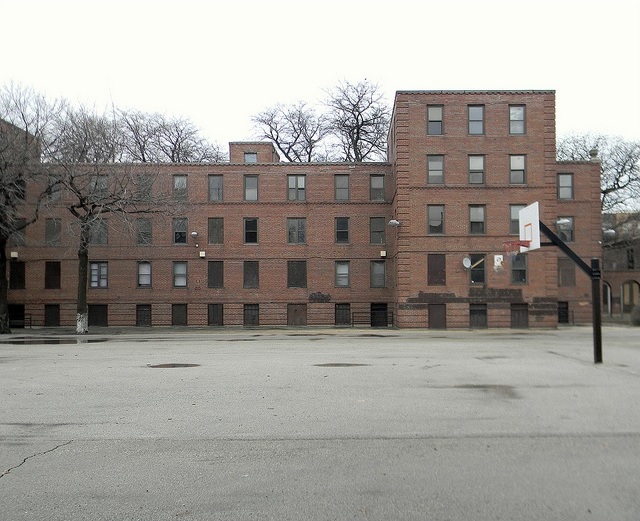Chicago Housing Authority Allocated Millions For Empty Units, Investigation Shows
By Mae Rice in News on Jan 7, 2016 11:00PM
The Chicago Housing Authority collects millions of taxpayer dollars per year for dilapidated, boarded up units in a public housing development Lathrop Homes, according to a CBS investigation.
Located in prime real estate right on the riverfront, the development—listed in National Register of Historic Places—consists of 925 low-rise units scattered across more than 30 acres.
Of those 925 units, about 775 are vacant, Leah Levinger, executive director of the non-profit Chicago Housing Initiative, told CBS. If her estimate is correct, that means CHA takes in $7.7 million, by CBS’s calculation, for empty units.
This money does not go towards meaningful maintenance. The few residents report poor conditions to CBS, both in the inhabited apartments and the empty ones:
J.L. Gross, a Vietnam veteran, live with poor conditions. Gross says he has water damage from the vacant units above him which he says also caused mold to grow. There also are fire dangers including a broken escape door to the roof.
Levinger told CBS that she thinks the poor conditions are meant to drive out residents, so the city can sell off the valuable parcel of land Lathrop Homes sits on.
In February 2015, NPR reported on different plans for Lathrop Homes:
The latest plan for a redeveloped Lathrop Homes calls for one half of the historic development to be torn down and the rest rehabbed. The new Lathrop would include 500 market-rate condos and townhouses, but only about 200 low-income or affordable apartments and 400 public housing units, down from the current 925.
That plan hasn’t changed, according to the CHA. In a statement to CBS, the agency said that “Lathrop Homes is a key component of CHA’s housing portfolio and the agency plans to begin construction this year to create a mixed-income neighborhood.”
As CBS’s investigation demonstrates, however, the extensive lag between the planning and execution has been lucrative for the CHA.
In its vague statement, the CHA suggested the millions it makes on empty units in Lathrop Homes go into its cash reserves, which it uses for “capital and development projects” and “real estate development and other housing activities.”
Levinger sees something insidious afoot here, though.
“Everybody should be angry about it,” said Levinger. “We’re all being scammed.”
